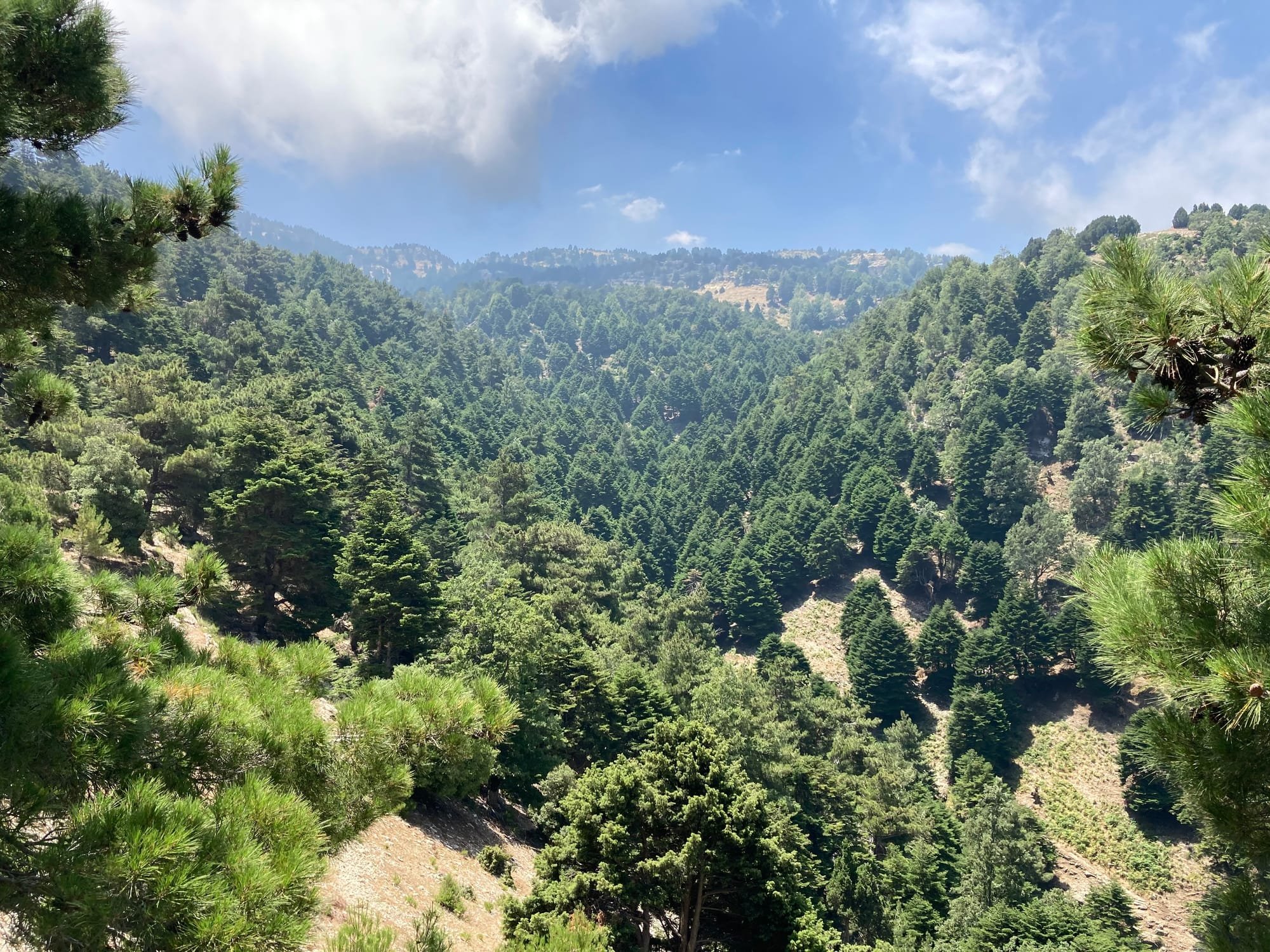Mini-conference “Scholar and Community Activism: Reckonings and Reflections”

More than ever before, scholars are reckoning with the separation between knowledge production and real-world struggles. Justice and transformation have become hot topics, but genuinely aiming for these requires a collective questioning of the baggage held by scholars themselves. There is growing consensus that we need to intimately collaborate with the communities that live through what we study and write about. When doing so under urgent circumstances, production of immediate results may be the go-to response. But deliberately taking the time to reflect can keep us from reproducing what we critique.
The reflections above catalyzed the “Scholar and Community Activism: Reckonings and Reflections” mini-conference on July 12-13 2022, co-hosted by the Nature Conservation Center and the Asfari Institute for Civil Society and Citizenship at AUB, in collaboration with Environment Academy and Khaddit Beirut. Day 1 of the conference took place at AUB’s Issam Fares Institute, while Day 2 of the conference took place in Akkar el Atiqa, in one of the communities currently working with Environment Academy to protect the endangered Cilician Fir (shouh) tree through a community-based ecosystem management plan.
DAY 1:
During Session 1 (9:30-11am), we heard from 8 activists associated with Environment Academy, Khaddit Beirut, and youth secular political movements, who are shaking up the status quo through their grassroots mobilization and actions. Their talks were pervaded with passion but also brought forth the lessons they have learned while facing the country’s political and economic challenges.
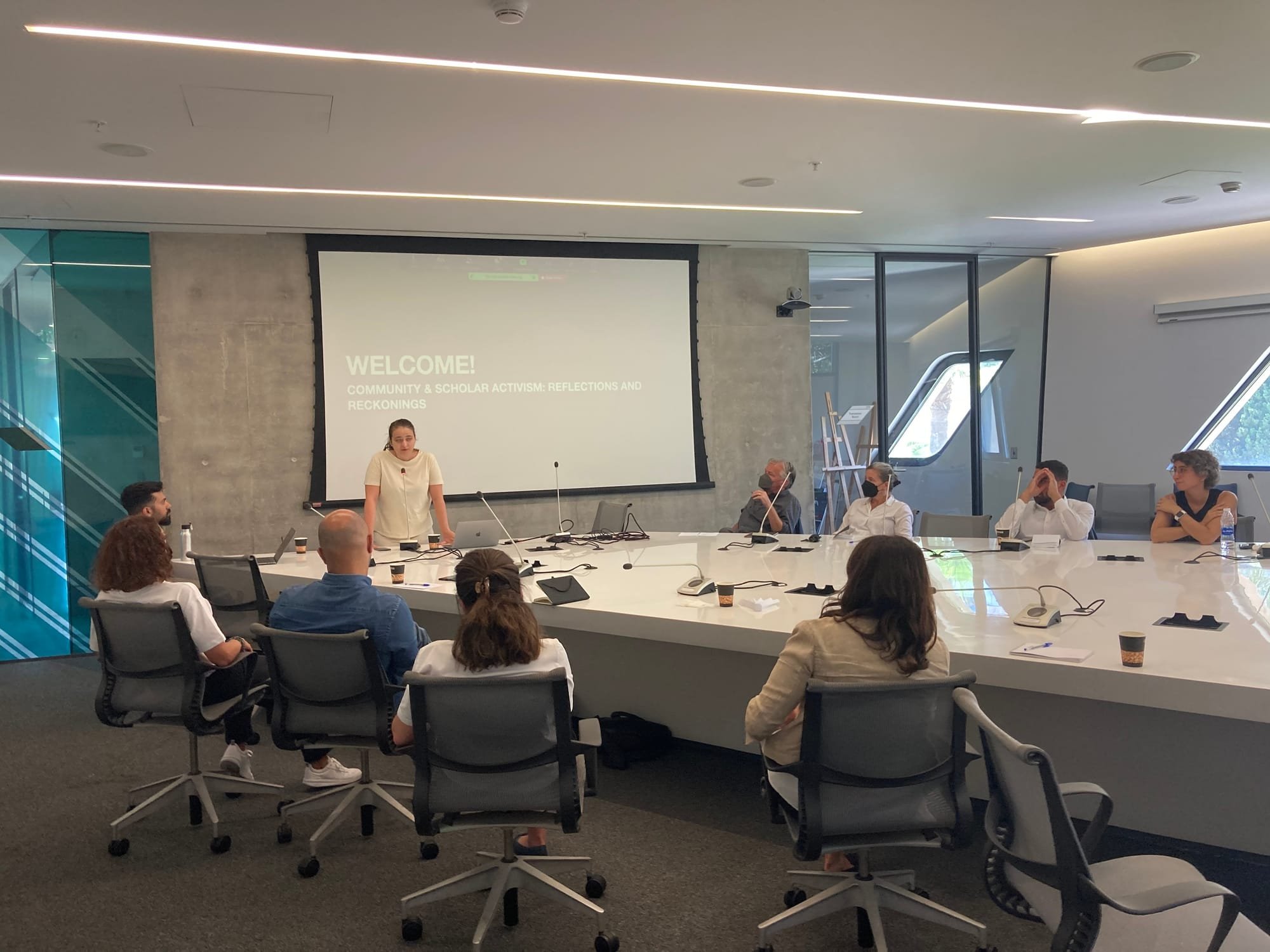
During Session 2 (11:30am-1pm), the scholars from the audience reflected on what they had learned and the patterns that define the work of community & youth activists on the ground, with an eye to collectively thinking through the ways in which academia can inclusively and effectively support them and their initiatives.
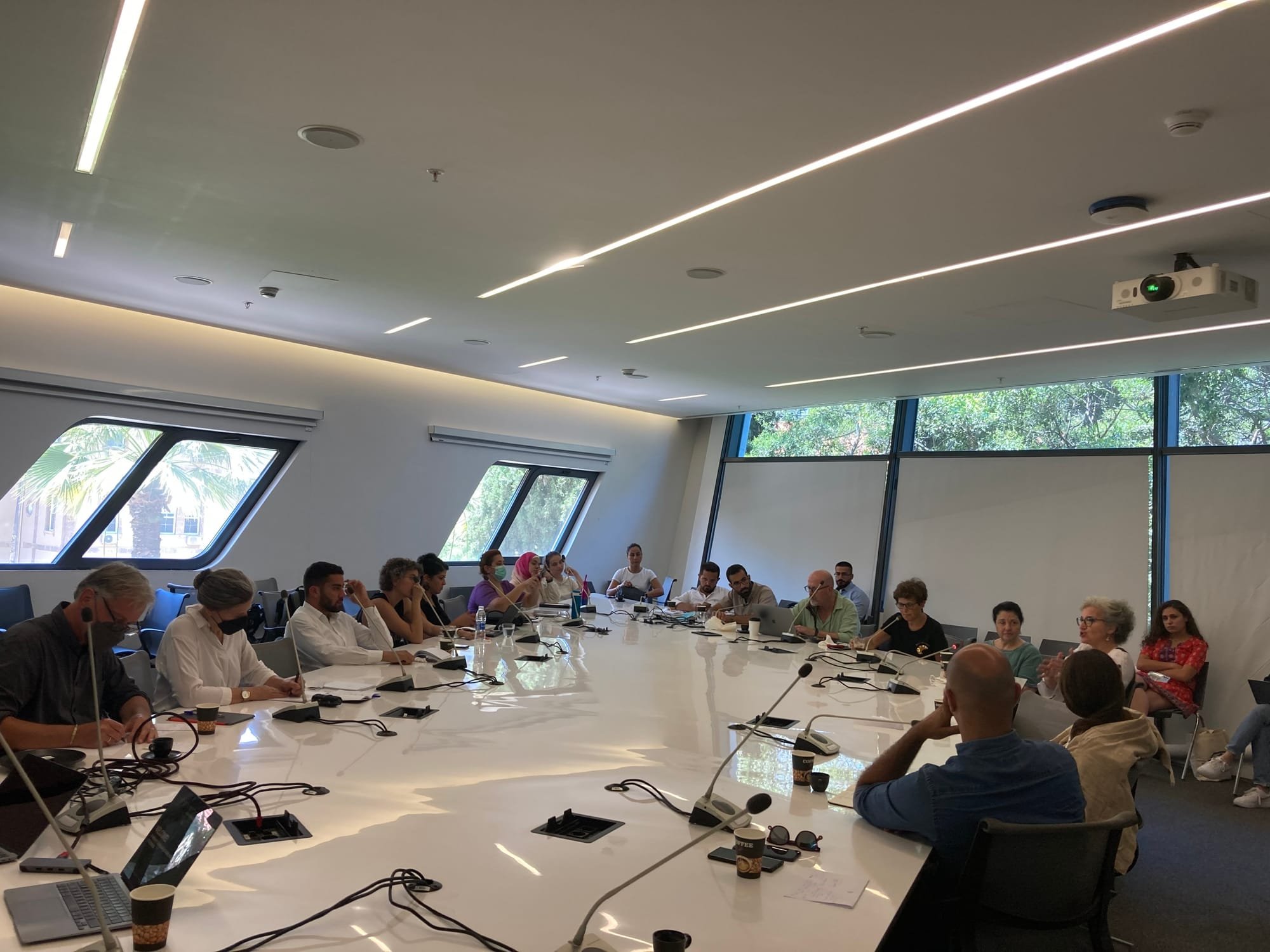
The discussion took many turns, starting with the way in which solutions are functions of how we understand problems, and the need to work with people on the ground to truthfully define them. We discussed how one becomes a scholar-activism and maintains their engagement within while independent from institutional boundaries. We discussed the concept of deliberateness versus urgency—how to ensure sustained activism, going beyond “hype” and towards enduring movements, inspired by youth who are rethinking deference and hierarchy in favor of horizontal collectives. The session closed on concrete ways for scholars to support activism—including how to lift up the initiatives of young people and community activists, to hold each other accountable, and accomplish things as collectives rather than individuals.
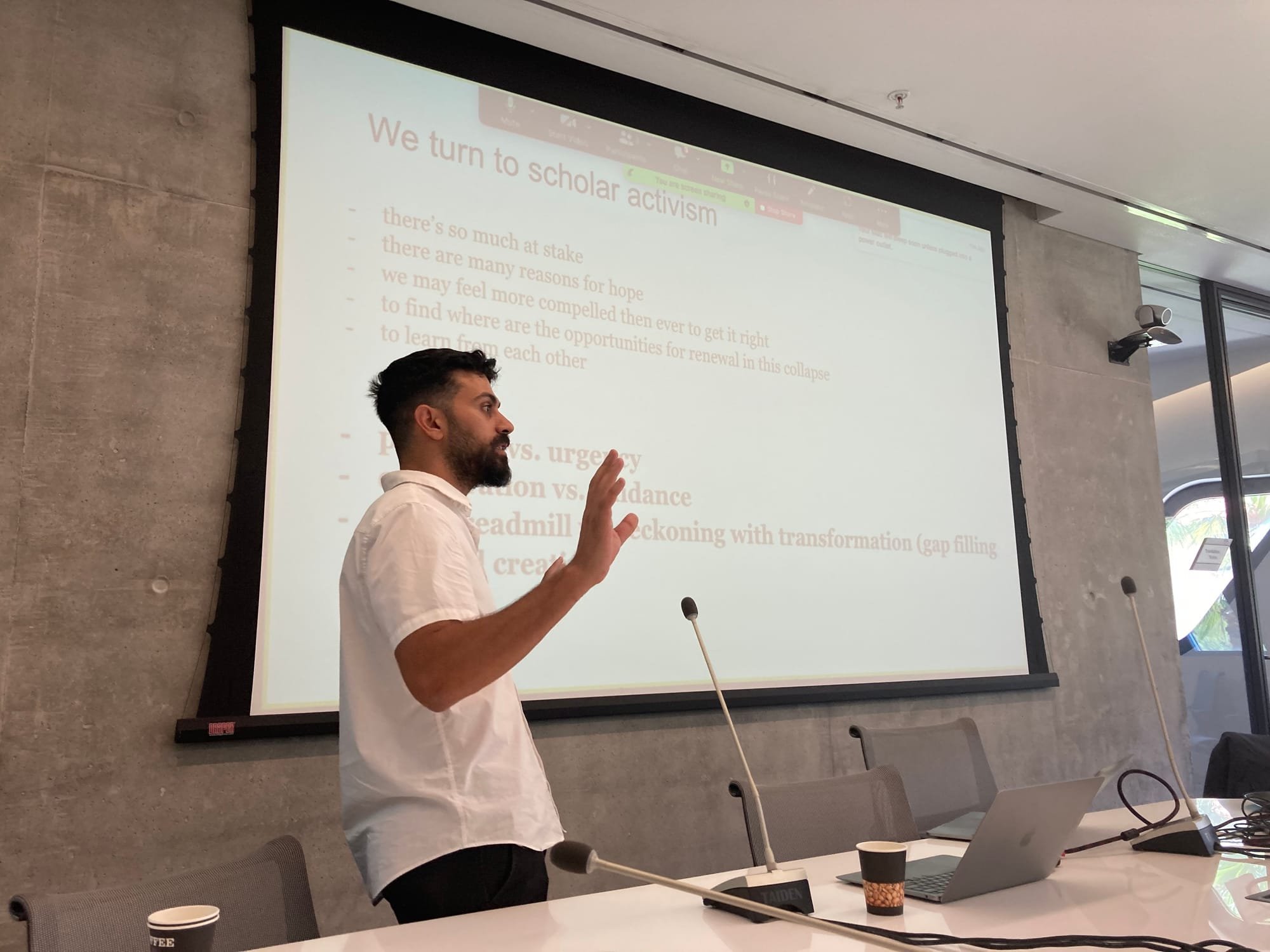
DAY 2:
The next morning, we left early for Akkar el Atiqa, where we visited the community team (Ahmad, Taha, Rihab, and Fatima) in the forest they are working hard to protect. Visiting the team to learn about their community-born environmental initiative was an important part of the mini-conference’s attempt to highlight and interrogate the common dynamic between academic institutions and their collaborating communities, by visiting the place that is inspiring grassroots mobilization rather than only inviting activists to talk at the university.
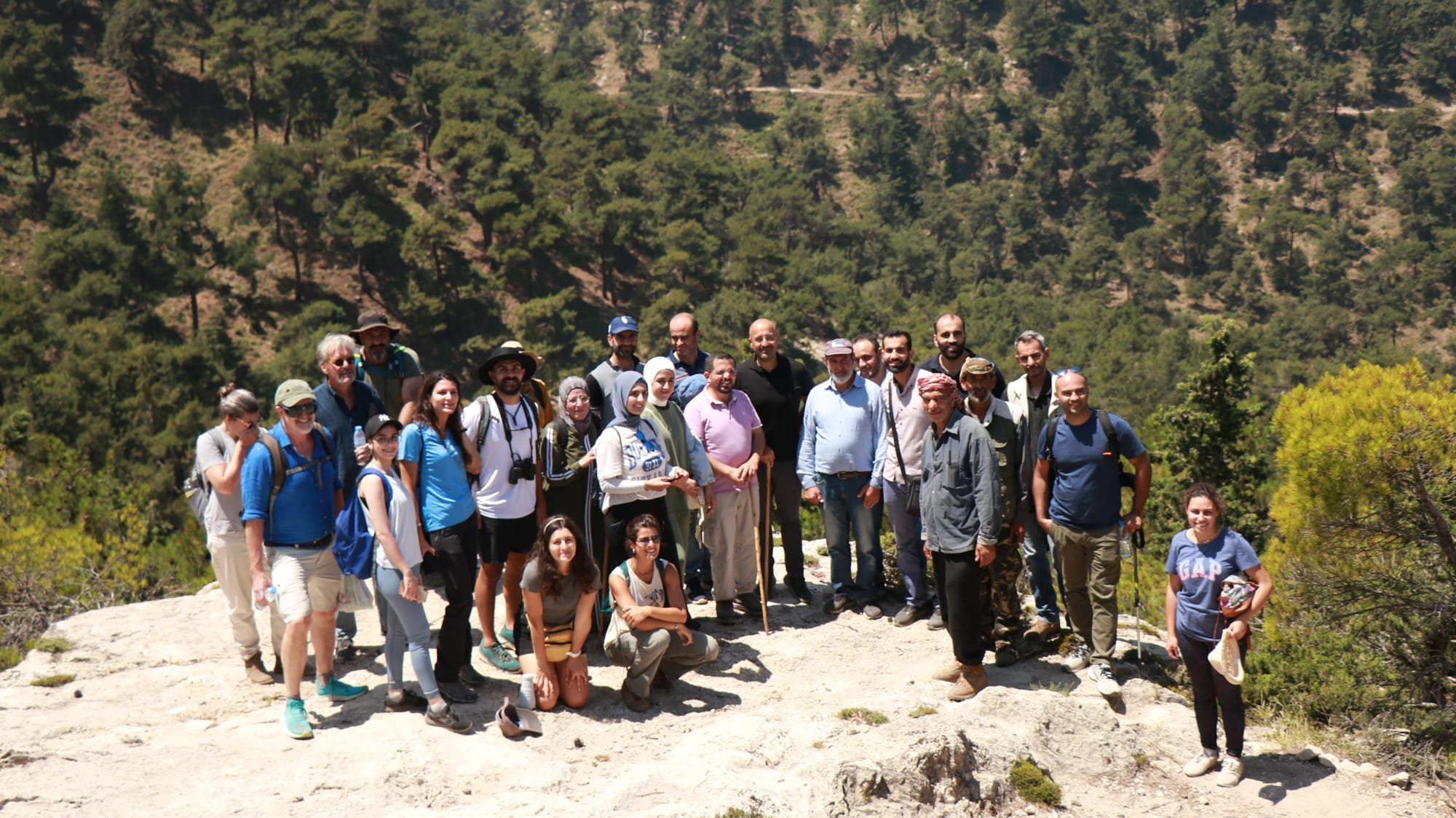
We were joined by the Minister of Environment, Dr. Nasser Yassin, who is involved in our attempt to create a community-based ecosystem protection plan in the Qammoua forest. We were welcomed by the Akkar el Atiqa team, the village’s school principals who are working on environmental education programs, elders from the village, and forest guards who spend their days in this forest. After hearing from local community members and the Minister on the challenges faced by Akkar el Atiqa to protect this forest, we hiked into the trees.
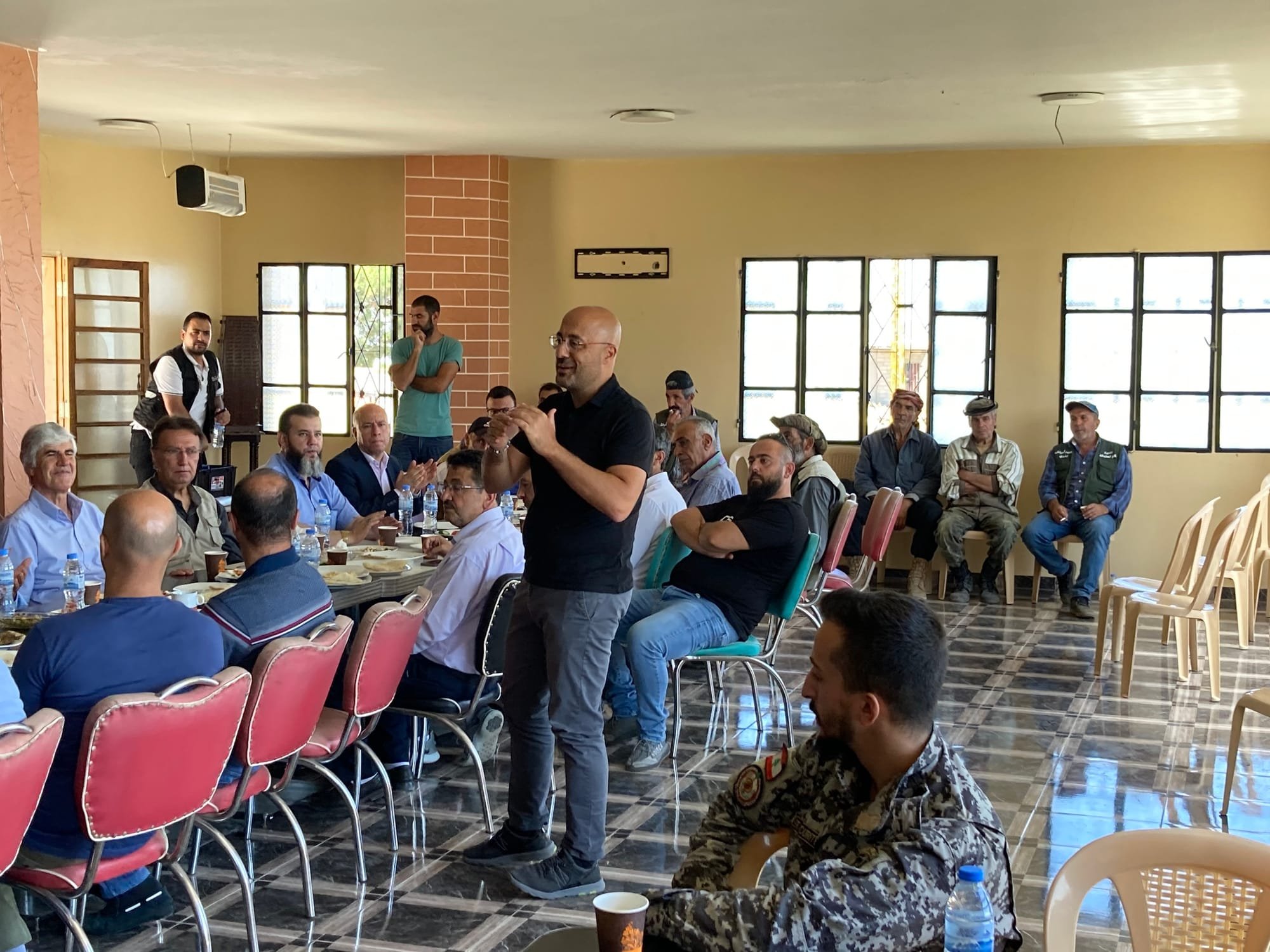
During this day, we learned about the months of research and work that have gone into understanding the challenges faced by the endangered shouh tree in its sapling recruitment, and the pathways that the team is considering to maintain its healthy population. We also witnessed the deep connection that Akkar el Atiqa inhabitants have with the forest through their rich local ecological knowledge but also their excitement about different spots in the forest where they come to see the view, camp, and have picnics. Taha showed us a spring where ice-cold water comes out of the mountainside; we learned from Sanaa that zoubea (zaatar) must only be harvested after it flowers to give bees an opportunity to pollinate first; we learned from Ahmad about how plants can grow little hairs depending on ambient humidity and temperature; from Mohammad the Mokhtar about how trees are affected by heavy snowfall; from Sanaa and Mohammad the forest guard about how to harvest a rare plant good for kidney health. The day’s experiences highlighted the power and honesty of initiatives spearheaded by those who know and care about a place. The scholars and EA core staff present on the field day left with a fuller perspective on the initiative and its technicalities, but also having touched on the attachment to place and deep care that preceded the team’s step to action.
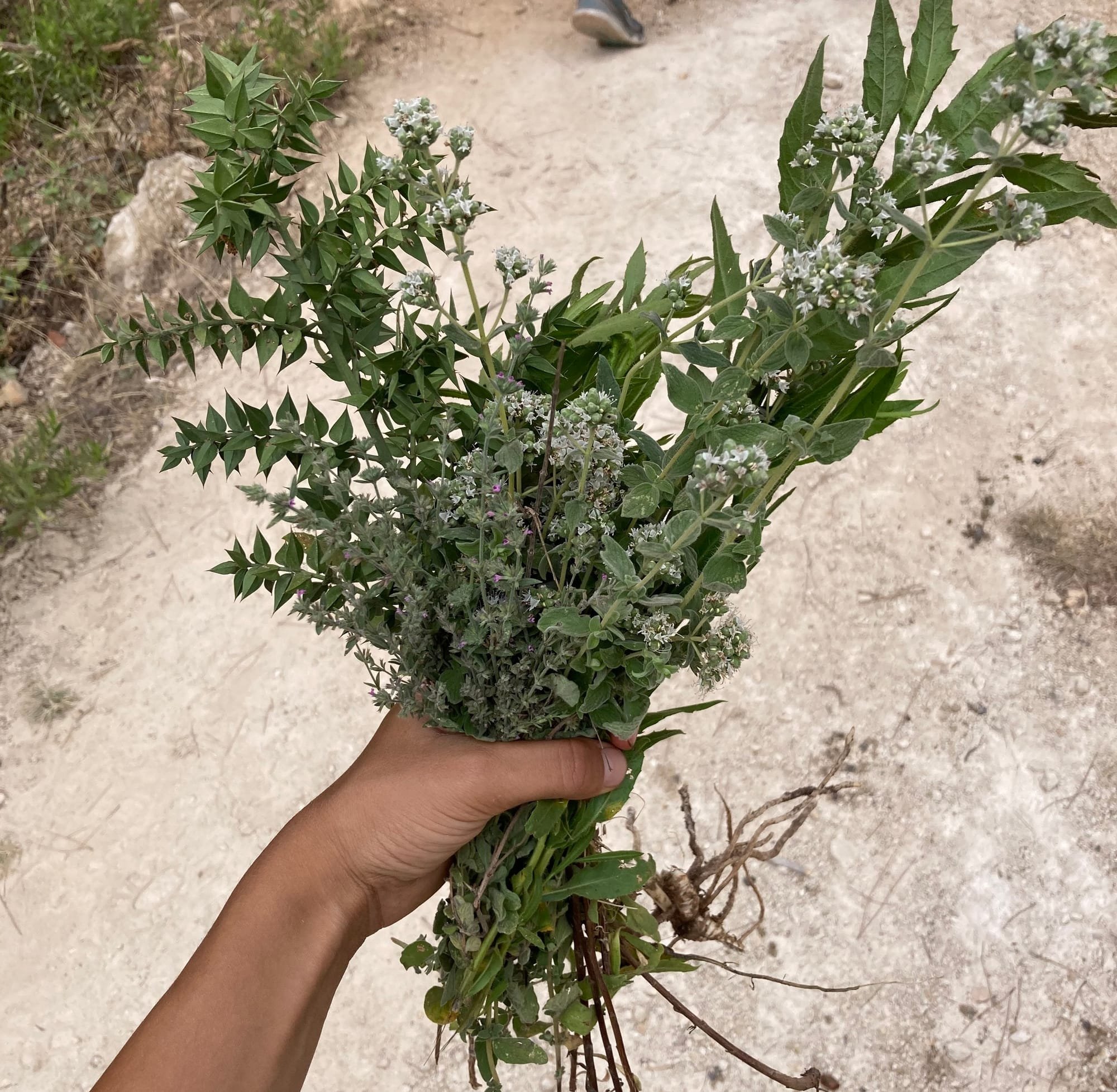
Thank you to all who participated in the “Scholar and Community Activism: Reckonings and Reflections” mini-conference — community activists, youth activists, scholars from AUB and the U.S., staff from Environment Academy and Khaddit Beirut, and the Akkar el Atiqa community.
